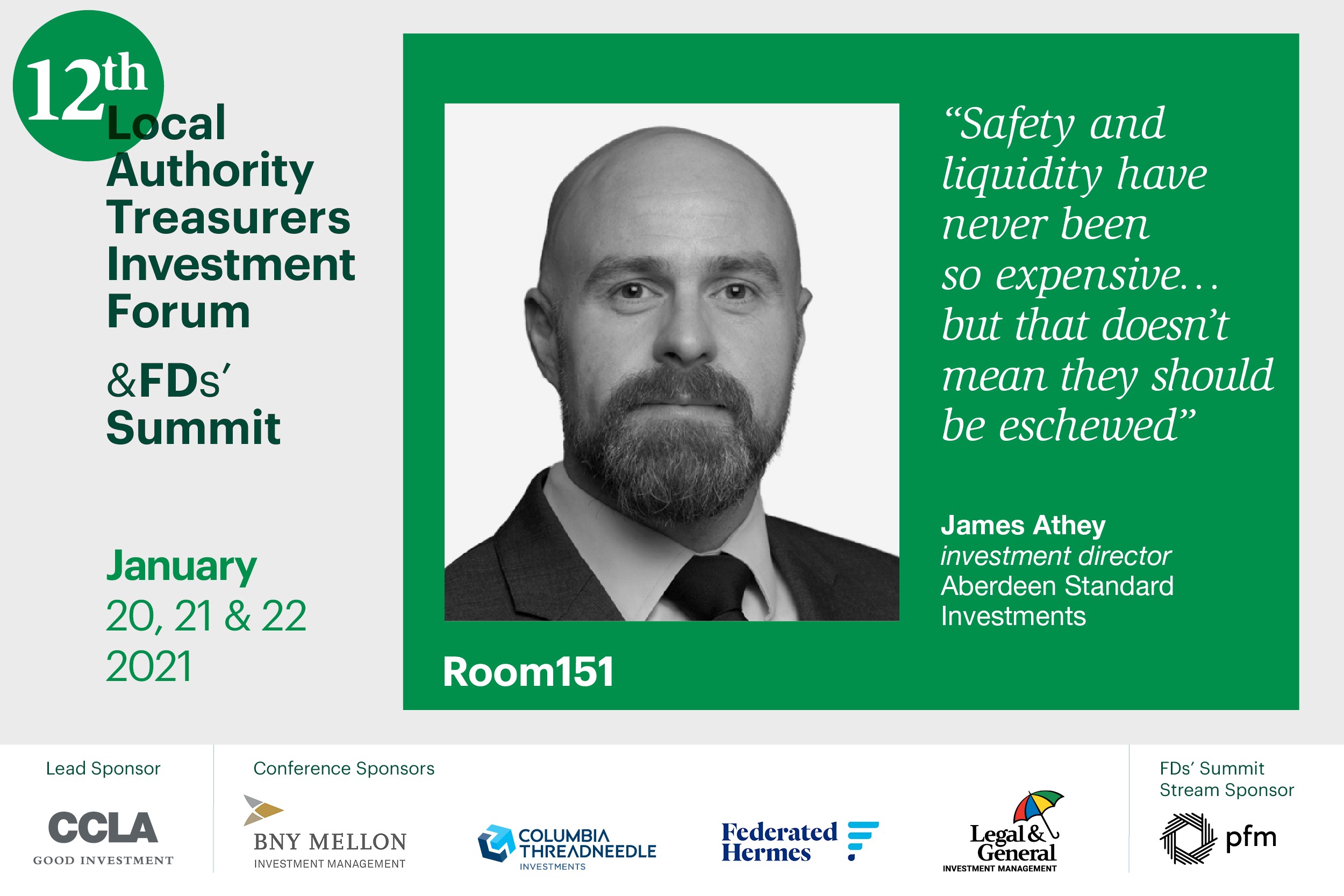
Managing investments only for charities, religious organisations and the public sector CCLA’s Public Sector Deposit Fund, a money market fund designed for its public sector investors, reached an important milestone this week when it passed £1bn of assets under management for the first time since its launch in 2011. We spoke to fund managers Stuart Freeman and Rob Evans about the fund’s origins, its future and the liquidity challenge facing local authorities today.
Room151: Stuart, congratulations on this important landmark for the PSDF. What does it mean for the fund?
Stuart: It’s a big step forward for the fund, first and foremost it shows that the Local Government Association and CCLA’s vision of creating a product for all public sector organisations, irrespective of their size, was well placed.
Our concept from the beginning was to simplify day-to-day cash management for treasurers and clerks by providing a professionally managed, UK-regulated cash product that only invested in instruments that they could understand.
It has gone beyond that: we have forged partnerships working with local and national umbrella organisations that has supported business growth and development aspirations.

Practically speaking, a larger fund allows us to increase our lot sizes and consequently helps us to increase diversification and command better rates in the sterling money markets, allowing all clients to benefit from this growth.
Room151: Tell us a little bit about the fund’s investors and its purpose?
Rob: Uniquely, the PSDF is only open to public sector clients but, having said that, the potential investor base is actually very diversified.
Interestingly we have found many have connections with our church and charity clients, knowing CCLA this relationship has spurred confidence in us and the fund. At present, there are 551 clients representing parishes, towns, districts, boroughs, counties, police, fire authorities and housing associations, among others, and we owe a big thanks to each and every one of them for helping us get to the £1bn mark.
The concept of the fund is a simple one: give our account holders, from the smallest to the largest, a ring-fenced product that complements their bank account and provides security, liquidity whenever required, and a competitive yield.
As well as having daily access to their funds, clients enjoy a dedicated website that is updated every afternoon, with monthly fact sheets, as well as the ability to download quarterly board papers presented to the fund’s very own advisory board.
The fund’s achievement has been our ability to support so many different types of investors. Help is provided by Mark Davies and Kelly Watson, who are always out meeting with new and existing clients, and our dedicated client services team, sat only a few desks down from us in our London office, who are on hand to assist with the onboarding of new clients and any day-to-day queries.
Room151: What’s the history behind the fund?
Stuart: CCLA has been an important participant in the Sterling money market for over 60 years, demonstrating our ability to perform through various interest rate and credit cycles. CCLA launched its first Sterling deposit fund for the Church of England in 1958 and then in 1985, after much consultation with the charity sector, the COIF Charities Deposit Fund was launched.
After small and large investors found their own deposits frozen during the 2008 Global Financial Crisis, and the subsequent lengthy and expensive legal reclaim process, many sought professional managers. We were approached by the LGA to see if we could create a fund that would be suitable for local authorities.
We explored many different avenues and after extensive planning concluded that the ideal solution would be to replicate the same accomplished model our church and charity deposit funds clients found so appealing.
Realising some of the success of our other funds had been due to the expert input, watchfulness, and advice from their own board members, we convened an advisory board for the PSDF despite no legal requirement.
The PSDF advisory board members have been active in shaping the fund’s direction from the start, helping us steer through the numerous regulation changes and have been loyal supporters. The board ensures that the fund remains wholly aligned with the principles and values of the public sector.
Room151: How does the fund integrate environmental, social and governance factors?
Rob: CCLA has integrated ESG issues into our money market and cash fund processes for well over 10 years. Prior to adding a counterparty to the approved list of financial institutions, we assess their corporate governance and approach to climate change and sustainability. This means that there are a number of entities that we will not deal with.
Our process also includes an active engagement programme which, over the years, has led to change on issues as wide ranging as the living wage, mental health and the funding of high-carbon assets. This means that the fund is also providing shareholders with a social and environmental return.
Room151: The wider story here is one of a funding crisis in local government who are at the frontline of fighting the pandemic. Why has that had an impact on the deposit fund?
Stuart: The Covid-19 crisis is putting many councils under a entirely new kind of pressure. Income streams such as car parking and leisure centre charges have dried up altogether, business rate and council tax collection rates are falling, and the pressure to spend on key services like homelessness and social care is expanding fast. No one knows how long this will last.
As some councils face the almost unprecedented prospect of running out of cash, so treasury management has a new prominence in managing finances.
Some councils are holding up-front cash payments from government that they need to eke out for as long as possible to meet the challenges of Covid-19, others are already managing cash on a daily or weekly basis. CCLA, through its PSDF, provides a trusted and secure deposit fund that can help active cash management.
In times of crisis, current and new clients are seeing the PSDF as a partner of choice to work with through the challenges and to help protect services.
Room151: And what are the specific challenges of running a safe, liquid and attractive money market fund in the current market environment?
Rob: We have to be mindful that the next few months will lead to unpredictable demands on the cash invested within the fund as our clients respond to this crisis.
To moderate this risk, we have been holding increased levels of daily and weekly liquidity. At the moment, we have more than 50% of the fund accessible in the week to meet possible redemption requests.
These are unprecedented times for the financial institutions with whom the PSDF makes investments and, while the starting position of banks entering this crisis has been one of relative strength, we have reduced the PSDF’s exposure and tenures to less well rated European and Japanese banks. We have also continued our policy of having no exposure to corporate issued commercial paper, which proved particularly illiquid at the end of the first quarter.
Over recent weeks, we have seen various members of the Bank of England’s interest rate setting Monetary Policy Committee discussing the relative merits of negative interest rates, while this discussion is very much live, it is something we will monitor closely as we move into the second half of the year.
Room151: What next for the PSDF?
Stuart: We are hopeful that a larger fund will prove increasingly attractive to those potential clients who have previously looked at the PSDF as being too small for their substantial cash balances and this will help drive our growth over the remainder of the year. However, in the meantime we would like to reiterate our thanks to our clients who have helped the PSDF reach this fantastic milestone.
CCLA Investment Management Limited and CCLA Fund Managers Limited are authorised and regulated by the Financial Conduct Authority. The Public Sector Deposit Fund is a UK short-term LVNAV Qualifying Money Market Fund.
FREE monthly newsletters
Subscribe to Room151 Newsletters
Monthly Online Treasury Briefing
Sign up here with a .gov.uk email address
Room151 Webinars
Visit the Room151 channel













